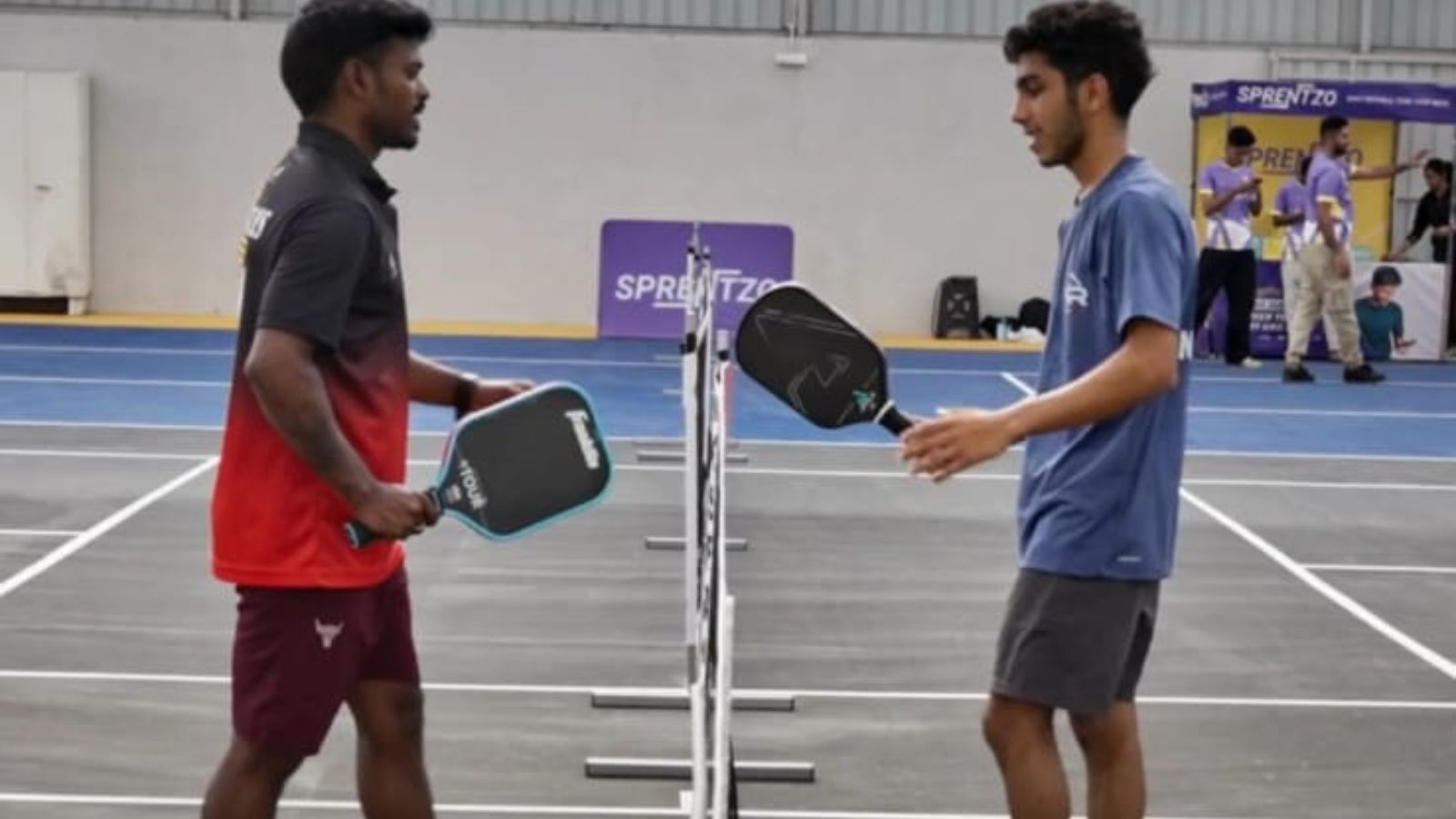It was Novak Djokovic who fired the warning in July this year. The 24-time Grand Slam champion said that tennis was being challenged by the popularity of new sports like pickleball.
“On a club level, tennis is endangered. If we don’t do something about it, globally or collectively, paddle, pickleball in the States, they’re gonna convert all the tennis clubs into paddle and pickleball,” said the Serbian tennis legend.
Djokovic’s warning is already playing out in many metro cities in India, with pickleball gaining fans rapidly. And as another all-time great of tennis, Andre Agassi scheduled to visit India in January to promote a pickleball tour and league, the sport is expected to get a push and greater visibility.
Even now, in cities like Mumbai where space is at a premium, pickleball has gained roots both in the well-heeled clubs and gymkhanas on one hand and in smaller arenas that have courts available on an hourly basis.
All of Mumbai’s prominent clubs like Juhu Gymkhana, Khar Gymkhana, Cricket Club of India, Bombay Gymkhana, and Willingdon Gym have pickleball courts now. In Delhi too, entities like Vasant Vihar Club have set up courts for the sport, while the Siri Fort Complex also has facilities for it. While some organisations like Goregaon Sports Club (Mumbai) have converted some of their pre-existing tennis courts into pickleball courts, others have set up new courts over the past two years.
The pickleball department at Khar Gym, for example, has over 300 members, which makes it the biggest at the club. Vishal Chugh, chairman of the pickleball department, says that the new sport’s popularity has quickly overshot that of other sports like squash (100 members in the department), table tennis (70) and badminton (75).
“Since we have so many people who want to play it and only three full-time courts besides two more additional ones in the multipurpose sports arena, we have started a grading system. We’re managing for now, but will request the committee for more courts soon,” says Chugh.
Mumbai is not the only city experiencing a rapid rise in numbers playing the sport.
“In Chennai, we have about 500 people in our community who play the sport on a regular basis. We play at public parks for free and there are a lot of courts which charge anywhere between Rs 500-Rs 1000 for an hour,” says K Mohit Kumar of the Tamil Nadu Pickleball Association. “Lot of people go to the US for work and when they come back, they invariably pick up paddles because they are used to it during their time there. I’ve seen elders who go to the US to spend time with their sons and daughters for three-four months coming back and joining us. So the community just keeps growing bigger and bigger.”
No starting trouble
So what makes the sport so attractive, even if the sport is yet to have a breakout athlete who can drive its popularity, like Djokovic or Roger Federer do for tennis?
“Pickleball is a much easier sport to learn (than tennis). It requires very little space. And it’s age- and gender-agnostic. You can have multiple generations of the same family playing the sport,” says former India tennis player Gaurav Natekar, the founder of the World Pickleball League, one of the two leagues coming up over the next few months.
“The sport has been around in India for almost 8 or 10 years now, but during COVID, everyone was looking for physical activity that they could do within confined spaces. Pickleball became a great option,” says Natekar. “Not only are tennis courts being converted for pickleball, a lot of former tennis players are also taking it up.”
There are other factors too behind the increase in the sport’s popularity. For one, it’s perfect for beginners: the athleticism levels required are much lower compared to tennis or badminton; the costs can also be pretty low, with a paddle costing as low as Rs 1,500.
Moreover, there are apps that have made the sport more accessible. One can book courts for as low as Rs 700 for an hour in Mumbai (with that cost being split among two or four people). The app also allows one to rent a paddle for Rs 100 an hour.
“In the last six months, we have seen a huge spike in the number of people wanting to book courts for pickleball,” says Ujwal Deole, co-founder and COO of KheloMore, a digital platform that allows anyone to access sports facilities for recreational or semi-professional activities.
Tennis courts require a lot of space, but one can have four pickleball courts in that space, adds Deole.
“Badminton usually needs an indoor arena, which increases the infrastructure costs. It could be around Rs 20 lakh for one badminton court, while a pickleball court costs just Rs 5 lakh,” says Deole.
In Mumbai itself, he says, there are 80 to 90 courts that one can book, whereas there are only about 20 private, bookable tennis courts.
(with inputs from Namit Kumar & Venkata Krishna B)



